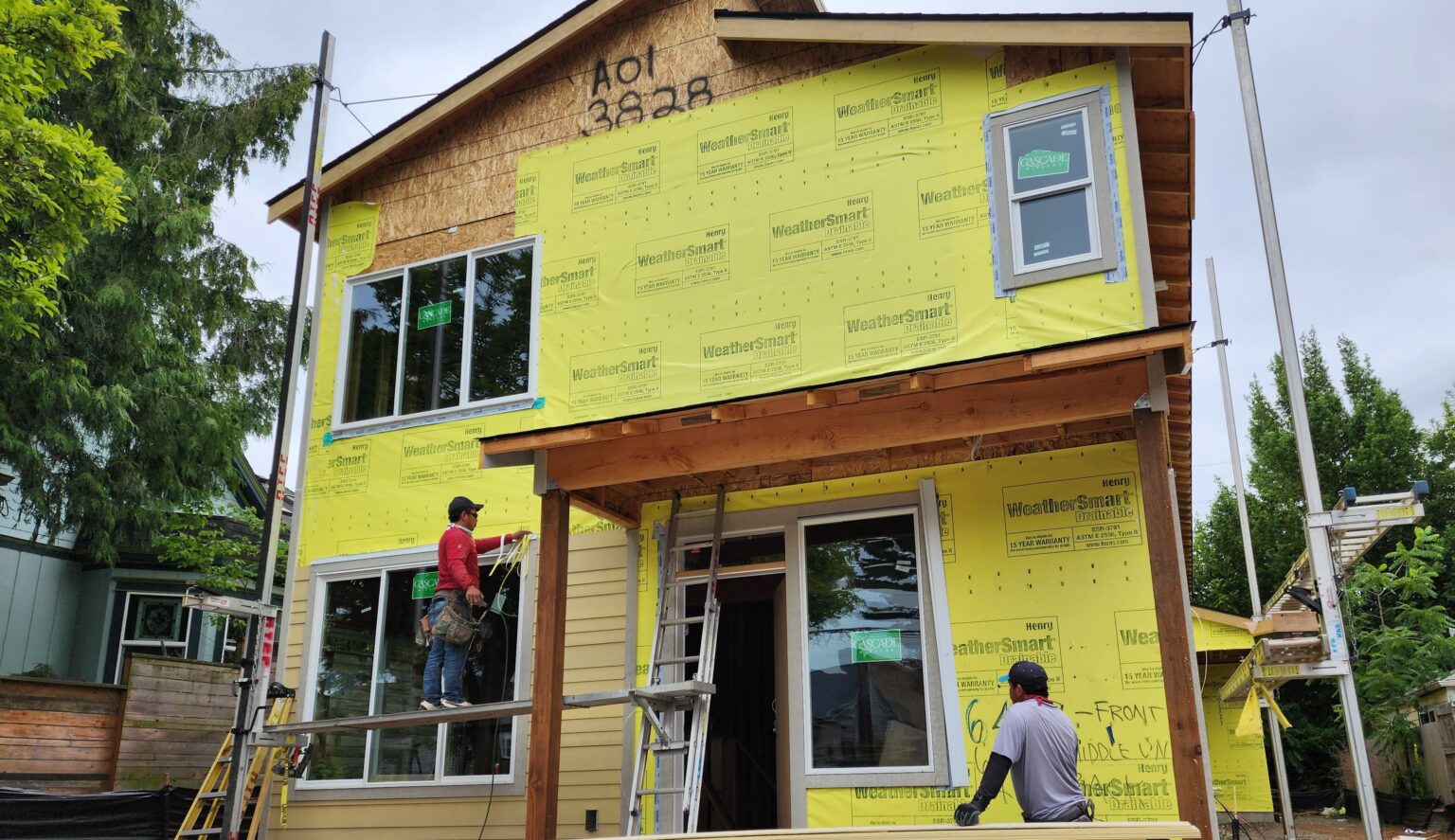DeRemer, McLeod-Skinner differ in CD5 debate
Published 9:22 am Friday, September 30, 2022
Only two things are certain in the closely watched contest for Oregon’s 5th District congressional seat, which now extends from Clackamas County south into rural parts of the Willamette Valley and east across the Cascades to Bend.
One is that either Republican Lori Chavez-DeRemer or Democrat Jamie McLeod-Skinner will be elected to join Democratic Rep. Suzanne Bonamici of Beaverton, who is favored for a sixth full term in the 1st District of northwest Oregon. (Two other Democratic women are running against two Republican men for Oregon’s other open seats in the U.S. House.)
The other is that the political gap between them is as wide as the geographic distance between their home bases in the newly redrawn 5th, based on their comments during their first joint televised appearance Sept. 27 on Portland station KATU.
Chavez-DeRemer, 53, is marketing director for Evolve Health, a group of mental health clinics. She is also a former councilor and mayor of Happy Valley — she was mayor from 2011 to 2019 — and lost bids for the Oregon House in 2016 and 2018.
McLeod-Skinner, 55, is a lawyer, a regional emergency coordinator based in Terrebonne and a board member of the Jefferson County Education Service District. She sat on the city council in Santa Clara, Calif., between 2004 and 2012, and was city administrator in Phoenix and Talent for brief periods in recent years. She lost bids for the 2nd District congressional seat in 2018 and Oregon secretary of state in 2020. She unseated seven-term Democratic incumbent Kurt Schrader of Canby in the redrawn 5th in the May 17 primary.
The district retains about 70% of Clackamas County — the western parts are divided between the 3rd and 6th districts — then into Marion and Linn counties before it extends east into Central Oregon. Clackamas County accounts for the largest share of voters at 42%; Deschutes County, 26%. A sliver of Multnomah County (7%) also is in the district.
The candidates gave one-minute responses to a series of questions posed by moderator Deb Knapp, plus two viewer questions relayed on video by anchor Steve Dunn.
Lots of disagreements
Although both said Oregon families need federal help, they disagreed vigorously on the economy, climate change, abortion, firearms and a lot more.
Chavez-DeRemer said the economy was doing well under Republican Donald J. Trump until the onset of the coronavirus pandemic in 2020, its sudden crash, and Trump’s subsequent loss of the presidency to Democrat Joe Biden.
“We have to make sure we get inflation and this economy back on track,” she said during the debate.
“It is incumbent upon us as leaders to invest in Oregon and make sure there are enough jobs so we can put food on the table and gas up our cars.”
McLeod-Skinner agreed that families need help, but offered a differing view.
“This is a tough time for Oregon’s working families,” she said. “We need additional investment to help working families get back on their feet,” such as federal aid for child care and housing, and lower costs for prescription drugs and health care.
Chavez-DeRemer initially specified little about climate change, other than to call for “innovative” solutions from the private sector. “We cannot continue to make our businesses villains, she said. “We need to make them our champions.”
Later, after McLeod-Skinner listed a series of steps to avert catastrophic wildfires, Chavez-DeRemer called for more intensive logging in Oregon’s federal forests: “We’re not getting into those forests to thin out dead or dying trees.”
McLeod-Skinner acknowledged that lessening the greenhouse-gas emissions generated by agriculture and trucking will hinge on technological advances.
But during her brief tenure as Talent city manager after the 2020 Labor Day wildfires, which destroyed thousands of homes occupied by low-income residents, McLeod-Skinner said much can be done to improve community preparedness for the likelihood of future wildfires. She said Congress has taken recent steps to provide more incentives for carbon-free energy, but more must be done to reach a net-zero goal by 2050.
“We must deal with this issue,” she said. “My opponent has offered no leadership on this issue.”
On abortion
They also argued about abortion, which the U.S. Supreme Court ruled by 6-3 on June 24 is no longer a right protected by the U.S. Constitution, reversing its 1973 decision in Roe v. Wade. “She is going to take away reproductive rights. I would protect them,” McLeod-Skinner said. “She celebrated the overturning of Roe v. Wade. I would codify it” by federal legislation to put reproductive rights into law.
“Government has no right telling us what to do with our bodies.”
The court returned the issue to the states. The Oregon Legislature wrote some protections into state law in 2017, although no Republican voted for the bill.
Republicans have largely shied away from the issue. Oregon Right to Life says it has polling to show that a majority of respondents would back some restrictions, but voters have rejected five ballot measures to do so between 1986 and 2018. Republican legislative majorities in 1999 passed a requirement for parental notification before a minor could obtain an abortion, and a human services budget that omitted state funds for abortions. But Democratic Gov. John Kitzhaber, a physician, vetoed both. (A subsequent budget restored the money. A federal law in effect since 1976 restricts funding for abortions.)
Chavez-DeRemer said a state curb on abortion should make exceptions for rape, incest and the life of the mother, although a federal ban proposed by South Carolina Sen. Lindsey Graham — which would override state laws — would ban the procedure after 15 weeks.
“To shy away from this issue is nonsense,” she said. “We know a majority of Americans and Oregonians want access to a reasonable, common-sense approach.”
High stakes
They also disagreed about firearms after Chavez-DeRemer brought up the Aug. 28 shooting in a Bend supermarket where three people died, including the 20-year-old shooter who was a former store employee.
“We have to make sure that we have wraparound services for young men and women — people who are distressed with their mental health issues — that we can make sure we are addressing that,” said Chavez-DeRemer.
McLeod-Skinner said that while mental health services are necessary, so are measures such as more complete background checks of purchasers, safe storage of firearms, and a ban on military-style assault weapons. Congress took recent steps to expand background checks for young buyers under age 21, but it let a 10-year ban on assault weapons expire in 2004. (Oregon has a safe-storage law; voters will decide Nov. 8 whether to require firearms training and complete background checks under Measure 114.)
“This is about people who respect responsible gun ownership and those who do not care about the safety of our communities,” McLeod-Skinner said. “This is about gun safety, not about gun control.”
According to September registration figures compiled by the Oregon Elections Division, voters not affiliated with any party account for 32.8% of voters in the district, Democrats 32.4% and Republicans 27.7%.
The race is listed as a tossup by two national rating services, and considered critical by the top party leaders — Democratic House Speaker Nancy Pelosi and Republican leader Kevin McCarthy, both of whom have come to Oregon to campaign for them and the other candidates for open seats. A national switch of a handful of seats would put Republicans in the majority.
Contributions for the race through June 30 were family even — $1.3 million for McLeod-Skinner, $1.1 million for Chavez-DeRemer — but they are likely to be far greater when the campaigns file their third-quarter reports with the Federal Election Commission.





